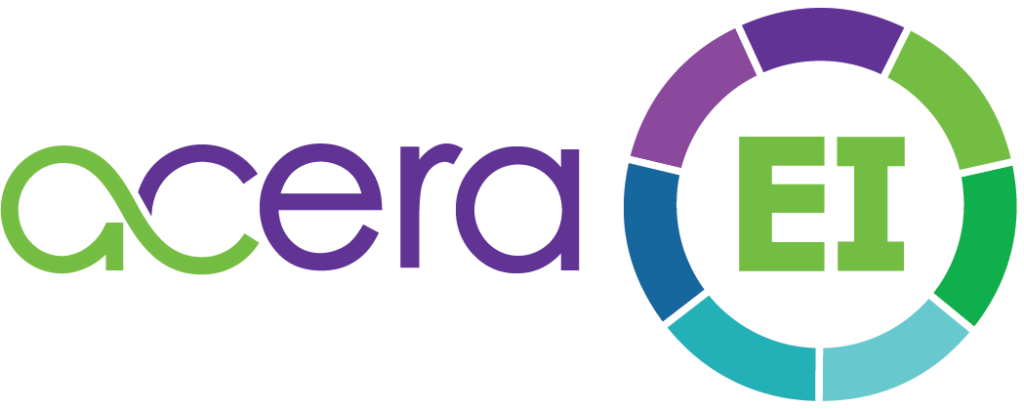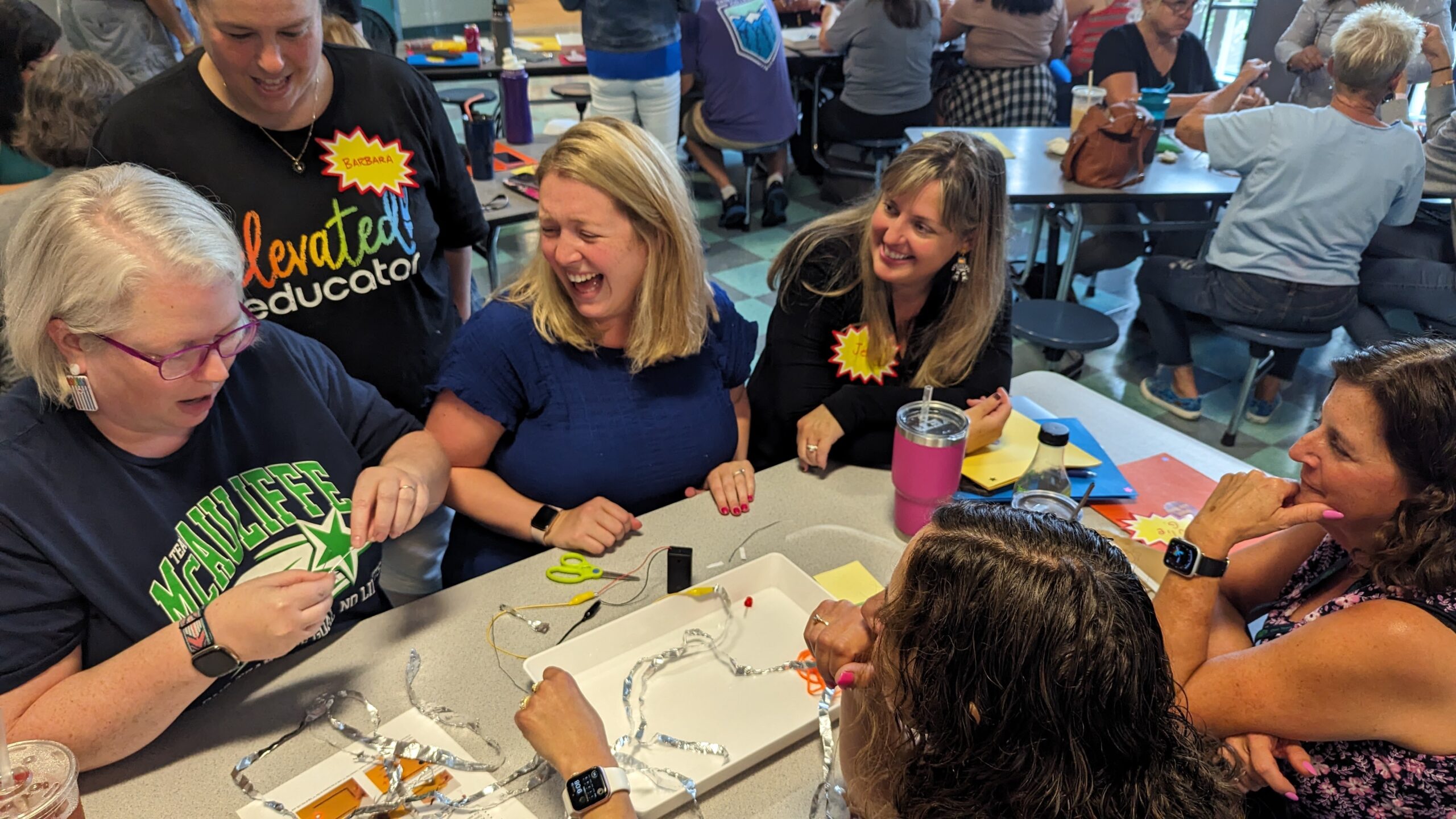Faculty and staff at the S. Christa McAuliffe Elementary School in Lowell recently experimented with maker education during a professional development workshop facilitated by Acera Education Innovation (AceraEI). The goal is to bring hands-on, creative, and STEM-infused curriculum to Lowell students.
In the workshop, teachers worked in small groups to build circuits using batteries, LED lights, and art tools. At the end of the workshop, the teachers displayed their creations in a gallery walk, and discussed how they can incorporate these hands-on activities into their existing curriculum.
“Seeing the teacher’s creations, and the integration of art and technology, is wonderful. It’s engineering, it’s design, it’s math and science,” said David Anderson, McAuliffe Principal. “This is what our students need. This is the next level of learning and interaction and creativity.”
Maker education is the concept of using hands-on activities to support learning. With elementary students, this activity serves as a pathway for introducing creative thinking, in which they can explore electromechanics, interactions between electrical and mechanical devices, and feel confident about building robots with simple electronics and craft materials.
Acera’s approach to maker space education merges STEM concepts like chemistry, circuitry, and programming with arts and crafts activities. A hallmark is its use of low-cost tools and materials to help students bring their ideas to life through creative making and design, something that appeals to budget-conscious school districts. Featuring curricula like Enchanted Electronics, Choreography of Matter, and Designing for Health, Acera’s Maker Education units are being implemented as a professional development series at several schools across Greater Boston.
AceraEI’s collaboration with Lowell Public Schools began in 2018 with multi-year partnership with the Joseph G. Pyne Arts School. Over the last several years, AceraEI and Pyne Arts have worked together to institute a number of pedagogical changes, including:
- The creation of a Pyne Arts STEAM Team, who were trained in AceraEI’s science, technology, engineering, art, and math curriculum.
- The adoption of hands-on learning, project-based learning, and universal-design for learning. Such learning provides students with meaningful connections to one another, opportunities to do work that is relevant and authentic, and learning experiences that build satisfying and substantive cognitive skills, habits of mind, and metacognition.
- The implementation of student-led conferences, in which students actively participate in parent-teacher conferences, presenting their portfolio, learning goals, and progress to their parents and guardians.
- The creation of electives and a Fine Arts Pathway, which provides students with choice and agency in their learning.
Today at Pyne Arts, standardized test scores are up, absenteeism is down, and parent attendance in conferences rose by 55%. Students self-report that they are happy in school, excited about what they are learning, and motivated to do well.

